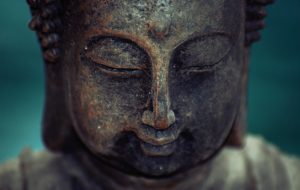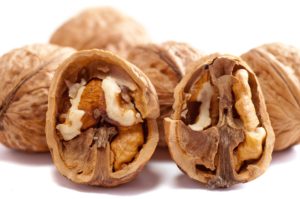- Mountain View Clinic1 Allenton Drive,
Old Court
Tallaght, Dublin 24.For Acupuncture Call Dermot on (085) 703-3087
For Counselling Call Teresa on (087) 6715212 Clinic Hours
Mon10am to 9pmTue10am to 5pmWed10am to 9pmThu10am to 9pmFri10am to 9pmSat10 am to 5.30 pm
Uncategorized
Herbal Tonics for Digestion
Digestive disorders can be simple like flatulence or gas, or they can be much more serious, such as Crohn’s disease. But regardless of the severity of the disease, there is no doubt digestive disorders affect far more people than they should. Most people don’t report it to their doctors either, because they assume it is normal to have gas, bloating or abdominal pain. But these symptoms can be indicators of much more serious underlying problems.
The gut is also the “second brain” of the body. When there are problems in the gastrointestinal tract, it can manifest mentally as well as physically. The enteric nervous system, our gut/second brain, is composed of more than 100 million nerve cells that line the gastrointestinal tract from the esophagus to the rectum. The ENS can trigger emotional shifts experienced by those suffering from gastrointestinal issues. But what science is also discovering is that emotional problems can also trigger issues in the ENS. It’s a two-way street and if one is out of whack, then the other may be also.
There are ways we can help our gastrointestinal tract and digestion, though. Traditional Chinese Medicine (TCM) is a medical system that has been around for thousands of years, and it focuses on treating the person holistically, meaning every part is addressed at once instead of individually. TCM uses modalities like acupuncture, acupressure, herbs, formulas and nutrition to treat each patient. Here are some herbs used frequently in TCM to help with digestion and gastrointestinal issues.
- Dandelion or Pu Gong Ying: This herb has been used for millennia for liver and digestive problems. It is used specifically for its diuretic properties. Pu Gong Ying promotes healthy digestive functioning and unlike pharmaceuticals used as diuretics, this herb actually restores potassium rather than depleting it.
- Hawthorn Berry or Shan Zha: Shan Zha is a great herb to have on hand after those big family dinners. This herb works to remove food stagnation in the digestive tract, and it works especially well on meats and fats that are harder to digest.
- Orange Peel or Chen Pi: One of the best herbs around for regulating the whole digestive system. It is used for spleen and stomach issues in TCM, including nausea, belching, vomiting, abdominal distention and pain. Due to its bitter flavour, it can also drain dampness that may cause loose stools.
- Ginger or Sheng Jiang: Ginger is a great digestive herb, as well as a warming spice that helps the circulatory system. It is a natural remedy for heartburn and nausea. It also helps expel gasses from the gastrointestinal tract.
- Peppermint: While not formerly used in TCM, it is still one of the best digestive herbs available. Peppermint can be used to relieve indigestion, soothe stomach aches and relieve diarrhea caused by colic. It is also a good addition to help treat irritable bowel syndrome.
Herbs can be very beneficial and help keep the body free from illness. The herbs mentioned above are just a few examples that would be good to have around if you suffer from digestive issues.

Five Reasons to Get Acupuncture for Migraines

Migraine headaches are a bit of mystery to the medical world. This ailment tends to be poorly understood and frequently undiagnosed and under-treated. According to the Migraine Research Foundation, this neurological disease affects nearly 39 million Americans. Migraines are characterized by severe, throbbing pain usually found on only one side of the head. Migraine headaches can also be accompanied by visual disturbances, dizziness, nausea, vomiting and extreme sensitivity to light and sound. These types of headaches can last from four hours to several days. Because modern medicine doesn’t completely understand this neurological phenomenon, the typical treatment is somewhat hit or miss.
There is an alternative though and this alternative is Traditional Chinese Medicine (TCM), which may include acupuncture, herbal formulas, tuina massage and cupping. Because TCM is customizable to the individual, it can do much more than just relieve pain. Here are five reasons why migraine sufferers should consider getting acupuncture:
- Acupuncture has been proven to relieve migraine pain. This is the number one reason TCM practitioners have people walk through their office doors. Pain, whether associated with migraines or not, is epidemic in the United States. Literally thousands of studies have shown acupuncture treatments can effectively relieve and reduce pain. This can be done both for acute and chronic pain. When acupuncture is coupled with tuina massage or cupping, the results can be even longer lasting.
- Acupuncture reduces inflammation. While migraines are not completely understood, it is agreed upon by most professionals any headache involves some sort of inflammatory response by the body. Acupuncture promotes the release of vascular and immune-mediating factors that actually decrease inflammation.
- Acupuncture can reduce serotonin levels. Serotonin is a hormone the body creates and many researchers, scientists and neurologists believe serotonin may be linked to the initiation of migraines. Since acupuncture can be used as preventive medicine, it can also help to balance serotonin levels on a long term basis, thus making migraines less likely to develop.
- Acupuncture can help with the symptoms of migraines. Acupuncture and herbal formulas can treat much more than just pain, including the symptoms of migraines. Studies have shown things like nausea, dizziness and vomiting can all be reduced through the use of regular treatments. Herbal formulas can be used in between acupuncture treatments to keep the symptoms under control.
- Acupuncture improves blood circulation. Many times, when a person experiences pain, it is because of a lack of proper blood flow and decreased oxygen. This is as true for migraines as any other type of pain. Acupuncture can improve blood circulation, which also increases the amount of oxygen that reaches the tissues. Cupping on the muscles surrounding the head, neck and shoulders is another modality that can assist with this as well.
IT’S ALL IN YOUR HEAD: HEADACHES AND TCM

There are four main types of headache: tension, cluster, sinus and migraine. And, there are varying triggers for these headaches, such as food, stress, hormones, dehydration and weather. Fortunately, eliminating the triggers and finding natural ways to prevent and help an ongoing headache are possible.
Tension: Tension headaches are the most common and are the result of impinged blood flow due to muscle tightness and contraction. Tension headaches are mild to moderate and are most commonly found behind the neck, on the forehead, behind the eyes and the top of the shoulders. Causes of tension headaches are stress, fatigue, cold, poor posture, skipping meals, and dehydration.
Cluster: Cluster headaches are the most severe and commonly affect men under the age of 30. Cluster headaches are usually one-sided and are accompanied by watery eyes, a red face and affect the face where the trigeminal nerve travels. Cluster headaches last days, weeks, even months and happen the same time every day, multiple times a day. Research shows the hypothalamus is involved in these types of piercing headaches. Causes include alcohol and smoking.
Sinus: Sinus headaches are from a sinus infection and feel like painful pressure around the eyes, cheeks, forehead, teeth and may have other symptoms such as post-nasal drip, congestion with green mucus or fever. The mucus is trapped in the sinuses causing inflammation, which creates the painful pressure.
Migraine: Migraines are another severe type of headache. What differentiates a migraine from a tension headache is the accompanying symptoms such as visual disturbances and auras prior to onset, increased sensitivity to light, nausea and vomiting and one-sided throbbing pain. Triggers may include hormonal changes, food sensitivity, weather, iron deficiency or thyroid issues.
In Traditional Chinese Medicine, the goal is to get to the root of the headache, not just treat the symptoms. There is a diagnosis and treatment plan based on a history, as well as a pulse and tongue diagnosis. Typical triggers for all types of headaches are wind, cold, heat and damp conditions either internally or externally. A wind type headache would be moving, a damp type would feel heavy, and a cold type would feel piercing and worse with cold conditions. Blood deficiency, which is a type of anemia, might also cause headaches, as the blood is not nourishing the head. Blood stagnation, which would be a severe headache, can also be a factor. After diagnosing the correct cause of the headache, a Chinese medical practitioner would apply acupuncture and offer herbs or other type of treatment to facilitate blood flow and alleviate pain. There would also be dietary advice and maybe some acupressure self-care.
Some foods have been shown to help headaches. This includes coffee, B3 (niacin, found in liver), magnesium, potassium, calcium, spicy foods, ginger and watery foods. A common herb for migraines is the magnolia flower. Others include lavender, peppermint, feverfew and basil.
Acupressure around the eyes, temples and in the web between the thumb and forefinger are helpful. Pressing the hollows of the neck with the thumbs can relieve the pressure, as well as visualizing hot energy flowing downward from the head and out the feet while making a “whooooooo” sound (breathlessly, as if blowing on a candle).
Reducing stress is a key factor; do deep breathing exercises and take a walk where there is greenery. It is best to see a health care practitioner and not to self-diagnose or take herbs without consultation. A headache could indicate something serious
The Shen Mind Connection
The Shen Mind Connection
Traditional Chinese Medicine looks at things differently and while it may be a little confusing, there is usually some common ground that can be found upon examination and explanation. One such area is the idea of the mind. The mind in Traditional Chinese Medicine is commonly referred to as the shen.
In Chinese medicine, the shen is interpreted as the spirit or consciousness. The shen lives in the heart organ system and it is considered to be one of the vital substances of the body. The shen is said to preside over the activities that take place in the spiritual and mental planes. So, for many TCM practitioners, shen is actually referring to the mind. And if we look at serious mental illnesses such as schizophrenia and bipolar disorders, the shen or mind is where the dysfunction actually appears. Chinese medicine refers to this as being “misted” or “clouded”. However, it should be noted not all practitioners agree the mind and the consciousness are the same thing. This is because many of our mental processes are considered subconscious.
As stated, the theory is that the shen lives in the heart. So if a person has a disturbed shen, there may be anxiety, stress, difficulty breathing, heart palpitations and more. Many people with a disturbed shen experience insomnia. Chronic insomnia can then lead to actual mental illness. If we follow this logic, we can see how the shen (in Chinese medicine) and the mind (in Western psychology) are related and somewhat interchangeable.
When we approach the shen from the standpoint of Western psychology, it is hard to deny there is a lot of shen disturbance in the modern world. This can be anything from anxiety, depression and addiction to the aforementioned serious mental illnesses like schizophrenia. A person with balanced shen will present as healthy, harmonious and level-headed. A person with disturbed shen will present with a lack of spirit or emotion, illogical reasoning and symptoms of mental illness.
Ultimately, we want to have a balanced shen. This means we may have emotional responses to external stimuli or internally generated thoughts or feelings and we are capable of controlling and recovering from these situations without much incident. Somebody who has a disturbed shen, would not know how or be able to deal with a similar situation and may act out irrationally while drawing attention to themselves. An example would be when a person with a balanced shen becomes angry or cries for some reason. They tend to feel relief after the emotion has passed. While somebody with a disturbed shen may continue the irrational behavior for quite some time without ever feeling that relief and they might need intervention to return to a somewhat balanced state.
Maintaining a healthy shen also means that we maintain a healthy body. A strong shen is fundamental to good health. When the shen is weak, the body will eventually fail. To keep the shen healthy we should focus on maintaining a positive mindset, getting enough rest, seeking peace, connecting with nature, meditating and showing compassion. This means we ultimately need to avoid overwork, chronic stress, an erratic daily schedule, lack of sleep and volatile emotions such as anger, hatred and resentment. This may seem pretty logical, but based on the amount of shen disturbance/mental illness in the world, it is clear we have lost our way to some degree.
The good news is the cumulative shen of the planet can be changed over time and we can all have a hand in making that change.

Walnuts and Your Brain
Many people like to add walnuts to food to add some zest and a little crunchy kick, but walnuts are much more than a flavor additive, as they are chock full of healthy properties and have been used in Asia as an overall health tonic and brain booster for years. Let’s take a nutty look at walnuts.
Walnuts, otherwise known as Hu Tao Ren
in Chinese medicine, are used as a kind of herbal remedy. In Chinese medicine, they look at the quality, temperature, flavor and color of a food to uncover certain elements that are beneficial to those who need to balance those qualities in their body. For example, the walnut is classified as “warming”. Warming foods tend to improve circulation and raise what is known as the yang qi. The yang is what is energetic, bright, outward, hot and moving (as opposed to yin, which is more inward, dark, still, cool and moist). Warming food is used in cold conditions; for example, if your stomach is cold from an overabundance of cool foods, you may have some digestive issues like gas and bloating due to slower digestion. In addition, the walnut is lubricating, moist and a bit greasy. This quality is helpful for lubricating the intestines and helping digestion and constipation.
In Chinese medicine, the element of the food goes to certain organs and is beneficial for them; walnuts are said to benefit the lungs, large intestine and the kidneys specifically. Walnuts strengthen the lungs to help chronic cough, asthma and skin conditions (which are connected to the lung, according the Chinese medical principles). Walnuts also are a kidney tonic and help urination; in addition, kidneys are said to influence libido, fertility, the back and knees and the aging process. Walnuts have been used to help libido and fertility, a 2012 study in Asia showed males who consumed walnuts had improved sperm quality. In addition, walnuts are used for insomnia. They help raise serotonin levels, which promote feelings of well being and help people sleep better. Finally, in looking at food as medicine, foods that resemble a body part often treat that organ. What does the walnut resemble? Two lobes of the brain, the left and right hemisphere. It is commonly known that walnuts are an excellent brain food. Walnuts have been shown to have high levels of Omega-3, which is an essential fatty acid that helps brain and heart function. Walnuts are anti-inflammatory, have antioxidants and recent research has shown they may have anti-cancer properties and help diabetes due to beneficial
fats. In addition, they have vitamin E, a powerful antioxidant, minerals and B vitamins. Walnuts help digestion and give a feeling of being full, so they aid in weight loss.
It should be noted that in Chinese medicine, most food recommended for health is used in a formula that is unique for you and an overall treatment plan is created. Walnuts are not a panacea for health care, and it’s best not to self-diagnose; instead, visit an acupuncture provider to get a thorough diagnosis and a balanced formula right for you. Walnuts are not recommended in cases of fever, diarrhea or allergic reaction to nuts. If you are generally healthy and want a nice tonic, add a nice handful of nuts to not only perk up your food but also your body.

